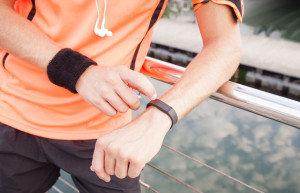Using an app for health should still be done with some caution
 Finding the right health-related app for you can be more of a chore now, with so many on the market and all of them touting themselves as the best one for you. Sleep cycle help, nutrition tips, diagnostics and diet advice can all be just a click away on this new version of a guide to better health.
Finding the right health-related app for you can be more of a chore now, with so many on the market and all of them touting themselves as the best one for you. Sleep cycle help, nutrition tips, diagnostics and diet advice can all be just a click away on this new version of a guide to better health.
It’s important to know, though, that many health apps on the market are less about the best information and more about generating profit, as author Patrick Wright points out in a recent article for ABC News in Australia. Digital health researcher Deborah Lupton points out that some apps are built not by medical experts but by web publishers out for a fast buck: “Most of these apps say, ‘for entertainment purposes only,’ which is pretty laughable considering they are promoting themselves almost as a medical device.”
From the article, here are some tips for being selective about using the latest health app, including what to watch for (positive as well as negative).
Consider the source
Being aware of who placed that app online is a good first step. If it’s a health system, university or organization that is known for providing health services or info, it’s a safer bet. If you can’t tell who created it, or if it’s coaxing you to buy a certain service or product, use caution before making it a part of your routine.
Engaging content is key
The fun factor may seem like a frivolous reason to use a health app, but it’s more logical than you think. A good example from the ABC story is running trackers. The basic ones don’t have much in the way of interactive or customized elements, while more complex ones practically take a degree just to run properly. The better ones have sharing capabilities and achievements to unlock so progress continues.
Flexible like life
This one’s especially important if you are going through life changes, such as being an expectant mother or if an injury has sidelined you. It doesn’t help if the app is cajoling you to get more sleep or exercise if neither can possibly be properly tracked at the rate when you downloaded the app in the first place.
Sharer beware
This last point goes beyond just the data your app is giving you and into the realms of what you are giving to it. You should be wary of apps that ask for too much personal data, especially if the terms and conditions are hiding something that could mean your info is being used for promotion or if it feels like the app would be vulnerable to hacking or compromised access.
The thing to remember most of all is this: the app is just a tool, not a caregiver or personal trainer. Use it for reinforcement of good health, not as your primary source for advice or encouragement.







